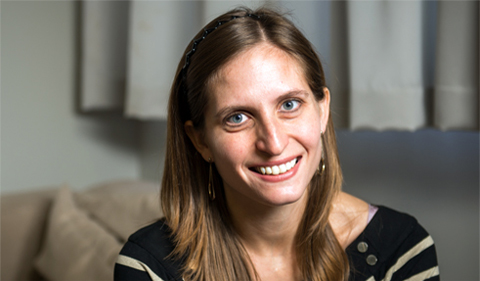Dr. Kimberly Rios, Assistant Professor of Psychology, was interviewed about her research on stereotypes about Christians in science for NPR’s Morning Edition.
In addition to host David Green, NPR’s Shankar Vedantam and Steve Inkeep joined the conversation.
VEDANTAM: That’s right, Steve. Most of the work on stereotype threat has looked at minorities and other underrepresented groups. This research looks at a majority group – American Christians – and it looks at a stereotype about American Christians – that Christians and science don’t get along. We often see headlines in the news that say creationism and evolution are in conflict. And many people have a stereotype that there’s something about Christianity and science that don’t mix. I was speaking with Kimberly Rios at Ohio University, and she told me that she noticed something on a recent trip to Morocco. When she talked to people there about religion and science, she found that Moroccans had a very different concept than the one in the United States when it came to Christianity and science.
KIMBERLY RIOS: In Islam, which is the predominant religion in Morocco, they don’t seem to have this conception that Americans do about Christianity – or religion, in general – and science about these two bodies of thought being incompatible. And when I talked to people in Morocco about this notion, that surprised them.
VEDANTAM: So Kimberly Rios and her colleague Azim Shariff, Steve, along with their grad students – they started thinking – what’s the effect of the stereotype that Christians in the United States have a problem with science? And they asked – is it possible that stereotype threat, this time applied to a majority group – American Christians – might stereotype threat explain data that shows that Christians are often outperformed in science by non-Christians?
INSKEEP: OK. What did the research find, then?
VEDANTAM: Well, she conducted a survey and a series of experiments. And she found that many non-Christians in fact do think that Christians aren’t good or aren’t interested in science, so there is a stereotype about Christians having problems with science. She then ran an experiment with Christians and non-Christians volunteers who were asked to solve problems of logic. Christian volunteers reminded about the stereotype that Christianity and science don’t mix did worse than Christian volunteers who weren’t reminded of the stereotype. This, of course, is classic stereotype threat. She also found that when she gave volunteers a test, Christians did worse when she labeled the test as a test of scientific ability, rather than a test of intuitive ability, even though the test was exactly the same, presumably because labeling it as a test of scientific ability triggers stereotype threat just like the girls asked to list their sex before taking a math test.
RIOS: Those who thought the test was about scientific reasoning – for those people, there was a difference between Christians and non-Christians. But for those who thought the test was about intuitive thought, there was no difference.
- Listen to the audio recording or read the transcript of “Researchers Probe Stereotype: Christians and Science Don’t Get Along.”
Rios’ collaborators include Rebecca Totton, one of her graduate students, as well as colleagues at the University of Oregon.


















Comments